Graduate Students
BA, Politics, UC Santa Cruz (2010)
Interests: Islamic Law, Ethics, Intellectual History, Technology
Mohamed’s primary research interests include Islamic Law and Ethics as they relate to emerging technology. He’s interested in studying how AI furthers, disrupts, or augments knowledge production and communal self-perception, as well as how it challenges existing legal and social norms within the Islamic legal and ethical tradition. Prior to joining the AIS program, Mohamed worked in senior roles in Marketing & Communications, designing and implementing cutting-edge technological solutions to raise millions for startup nonprofits that focus on humanitarian relief and sustainable development.
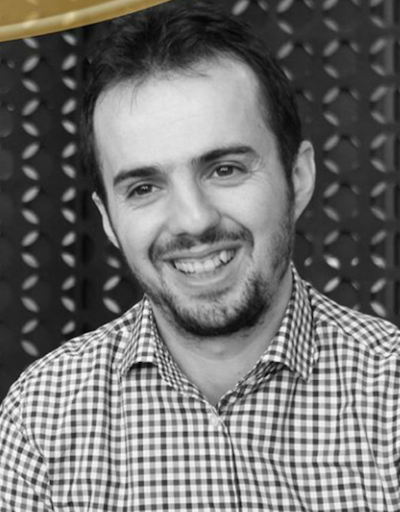
Islamic Law, Contemporary Islamic Thought, Ijtihad and Reform in Contemporary Islam
MA (2016), Contemporary Muslim Thought and Societies, Summa cum laude, Hamad Bin Khalifa University (HBKU), Qatar
MA (2011), Interdisciplinary Studies of Religions and Cultures, Summa cum laude, Pontifical Gregorian University, Rome, Italy
BA (2004), Sociology, University of Tirana
Rezart Beka received B.A. in Sociology from the University of Tirana in 2004. He obtained his first M.A. (with summa cum laude) in Interdisciplinary Studies of Religions and Cultures (with specialization in Christianity) from the Pontifical Gregorian University in Rome, Italy in 2011, and his second M.A. (with summa cum laude) in Contemporary Muslim Thought and Societies at Faculty of Islamic Studies (FIS) of Hamad Bin Khalifa University (HBKU) in Qatar, in 2016. He did intensive Arabic language courses at Diwan Center for Arabic Language in Cairo, Egypt in 2007-2008 and at Qatar University in 2012-2013. His areas of interest include Islamic Law, Contemporary Islamic Thought, Ijtihad and Reform in Contemporary Islam, Theology and Social Sciences in Contemporary Islam, Interfaith Dialogue, Comparative Theology, and Theology of Religions.
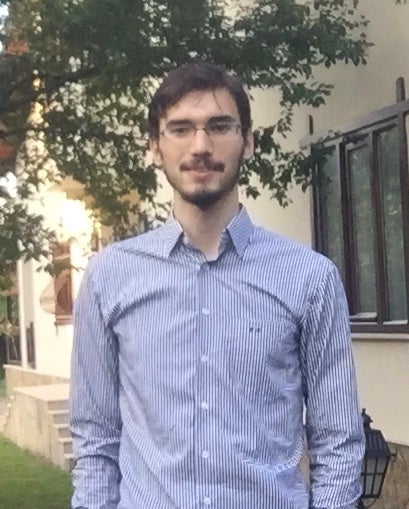
Hadith, Hadith Commentary, History of Early Islam, Companion Biography
MA (2018), History, Istanbul Sehir University, Turkey
BA (2016), with Highest Honors, Near Eastern Studies, Princeton University
F.O. Kelsey Prize for Best Second Term Junior Paper (Spring, 2015) Near Eastern Studies, Princeton University
Intensive Ottoman-Turkish (Summer, 2014) Istanbul Sciences Institute, Turkey
Intensive Arabic (Summer, 2013), Qasid Institute, Jordan
Ali Cebeci is interested in the formative period of the Islamic intellectual sciences. In particular, he studies the development of the hadith sciences and the role various types of hadith played in the growth of Islamic theology, jurisprudence and historiography. Additionally, he is interested in the history and historiography of early (i.e. 5th-7th century) Islam, and in particular, the portrayal of the Companions in classical Sunni historiography. He joined Georgetown University’s PhD program of Arabic & Islamic Studies in Fall, 2018.
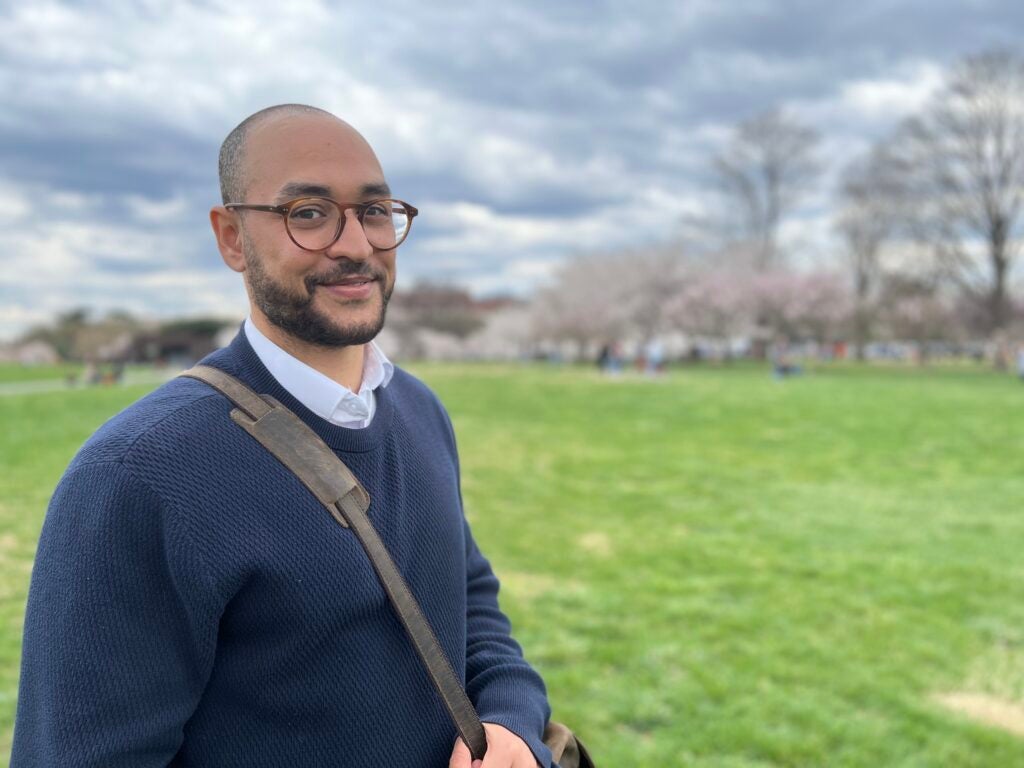
MA (2019) Middle Eastern and North African Studies, The University of Arizona
BA (2012) Languages and Translation from Al-Azhar University, Cairo, Egypt
Muhammad is PhD candidate whose research interests are focused on exploring the cultural, intellectual, and administrative legacy of the Fatimid Caliphate. His research examines the role of Sunni scholars embedded within the sociopolitical apparatus of the Fatimid court. He analyzes how these learned men mediated between ruling elites and the broader public through their writings, advisory roles, and educational activities. Additionally, Muhammad is interested in the scholastic institutions and pedagogical techniques that transmitted knowledge between generations across the Muslim lands during the medieval period. He is also interested in the social and intellectual networks across the Mediterranean. Prior to his doctoral work, Muhammad earned a Master’s degree in Middle Eastern and North African Studies from the University of Arizona, having previously completed his bachelor’s degree at the eminent al-Azhar University in Cairo.
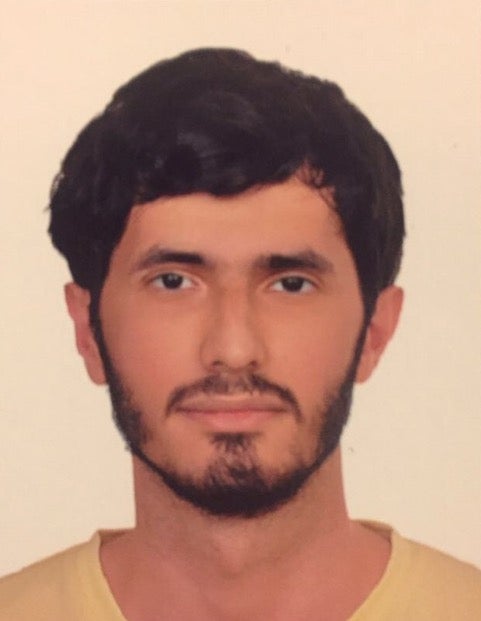
Classic and Modern Arabic poetry
MA (2017), English Literature, American University of Beirut
BA (2014), English Literature, American University of Beirut
Mohammad Fakhreddine is a PhD candidate with a concentration in Arabic Literature. He earned his BA and MA in English Literature from the American University of Beirut (AUB). His Master’s Thesis focused on Modern Arabic Poetry, more specifically the stylistic and technical innovations of the Free Verse Movement in the 20th century. Mohammad’s areas of interest include Classical and Modern Arabic poetry, poetic stylistics and metrics, and Arabic language and identity.
MA (2020) Islamic Texts, Zaytuna College
BA (2013) Sociology, University of Texas at Dallas
BA (2018) Islamic Law & Theology, Zaytuna College
Muaz is interested in the interplay between Islamic theology and Islamic law. He is interested in how theological debates pertaining to God’s wisdom or purposefulness inform debates about the role of certain legal instruments, such as legal analogy (qiyās) or considerations of public interest (maṣlaḥa). He is also interested in understanding the principles governing the determination of certain practices as heretical (uṣūl al-bid’a).

Islamic Jurisprudence, Contemporary Qur’an Interpretation, Hadith Studies
Magister (2014) in German Literature, Philosophy and Islamic Studies, Tübingen University, Germany
Irene is particularly interested in the reception history of Hadith forgeries (Mawḍū‘āt), Islamic economic law (see her article on the sharia-compliance of cryptocurrencies), religious epistemology, and theory of religion. During her Ph.D., she has started to delve into computational analysis techniques such as Text Mining and Topic Modeling and is exploring the intersection between Islamic Studies and the Digital Humanities. In 2018, she founded the Islamicate Digital Humanities Network (idhn.org) for which she currently serves as the director. She holds a Magister Artium degree (German master’s degree) in Literature, Philosophy, and Islamic Studies from the University of Tübingen, Germany, and previously taught for the DAAD (German Academic Exchange Service) at the University of Alexandria, Egypt.

Arabic linguistics
MA (2012), Arabic Language, Literature and Linguistics, Georgetown University
BA (2000), Wellesley College
Karen McNeil is a PhD candidate whose research interests include Arabic sociolinguistics, Tunisian Arabic, and literary translation. Her main interest is the changing status of the spoken vernaculars in the Arab world: she is currently writing her dissertation on the development of Tunisian Arabic as a written language. Her dissertation focuses on the spelling and code-switching choices that Tunisians make when writing a yet-to-be-standardized language, and what these reveal about collective and individual identity stances. In this work, Karen is making use of the Tunisian Arabic Corpus, a million-word, publicly-available corpus of Tunisian vernacular Arabic that she has been developing since 2011.
Karen has published several articles on topics related to Tunisian Arabic, including a forthcoming paper in Perspectives on Arabic Linguistics XXXIV entitled “When the leak becomes a flood: The development of vernacular literature in Tunisia.” In addition to sociolinguistics, she has published on Tunisian grammar, corpus linguistics, and Arabic lexicography. Karen has presented on these topics at conferences including the Annual Symposium on Arabic Linguistics (2019, 2020), the Arabic Linguistics Forum (2018), the Middle East Studies Association (2014), and the Workshop on Arabic Corpus Linguistics (2011, 2013). She was the invited keynote speaker at the University of Vienna’s International Symposium on Tunisian and Libyan Arabic Dialects in 2015. Her research has been supported by grants from the American Institute for Maghrib Studies (AIMS), the Graduate School of Arts and Sciences at Georgetown University, and the Department of Arabic and Islamic Studies.
In addition to her academic research, Karen has done extensive work in Arabic translation, lexicography, and consulting. Along with her co-translator Miled Faiza, she recently completed the English translation of Shukri Mabkhout’s novel The Italian (2021), winner of the International Prize for Arabic Fiction in 2015. She has also translated many shorter works for publications including Banipal and World Literature Today. In addition, Karen was the lead revising editor (Arabic–English) for the Oxford Arabic Dictionary (2014). Most recently, she has worked as a computational linguist, performing semantic annotation and building Arabic corpora for MITRE Corporation.
Karen lives in Rhode Island with her husband, the Tunisian-American poet Miled Faiza, and their three children. Outside of work and research, her hobbies include baking, astrophotography, and coding in Python.
Personal website
Academia.edu page
Research website
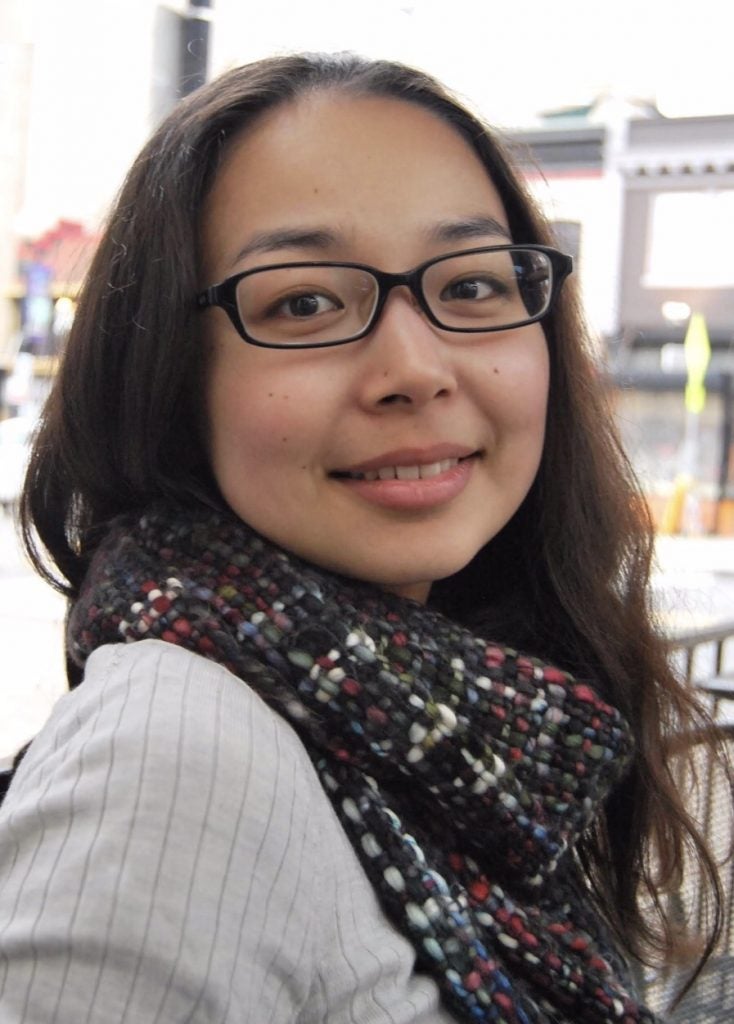
Arabic and Islamic Philosophy
BA (2016), Summa Cum Laude, Philosophy, University of Dayton
The Rev. Charles C. Bloemer, S.M., Award of Excellence in Philosophy (2015)
The Rev. Charles Polichek First Award of Excellence in Philosophy (2016)
Eriko works on Arabic and Islamic philosophy, especially on the transmission and adaptation of Greek knowledge into Arabic. She is currently writing her dissertation on the 10 th -century philosopher Abū Naṣr al-Fārābī’s theory of knowledge. She is a recipient of the Templeton Foundation Doctoral Fellowship for the Theology, Science, and Knowledge project at the Philosophy Department at the University of Missouri, St. Louis for the Academic Year 2020-2021. She has presented her work at various conferences, including annual meetings of the Middle East Studies Association (MESA) and the American Philosophical Association (APA). She also has an interest in manuscript studies.
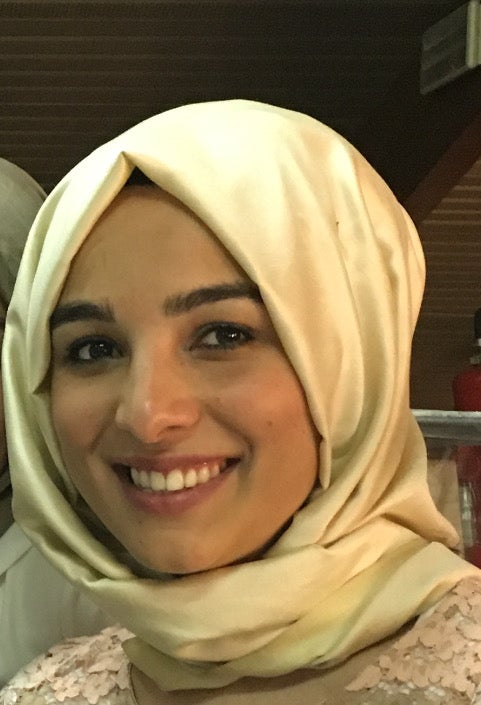
Islamic law
MA (2015), Islamic Studies, Istanbul 29 Mayis University, Turkey
BA (2013), Divinity, Ankara University, Turkey
In her master’s thesis, Shar’u man qablanā in the uṣūl al-fiqh literature of the first five centuries (AH), Hatice surveyed the works of the scholars who studied shar‘u man qablanā, starting with the first printed uṣūl al-fiqh book and ending with some of the sixth-century scholars, such as Al-Ghazālī, Ibn ‘Aqīl and Al-Kalwadhānī. She examined the early scholarly debates on whether shar‘u man qablanā could be referred to as a source of Islamic law.
During her doctoral studies, she would like to study the taxonomy of the sources of law revealed in the uṣūl al-fiqh works of the late Ottoman period, more specifically in the works of Ibn ‘Abidīn. Her areas of interest include the relationship of a legal concept with its social environment, the interaction between scholars of different madhhabs, and the interrelation between religious institutions and politics.
She is a native Turkish and French speaker and studied Arabic at several universities and language institutes in Turkey and Egypt.
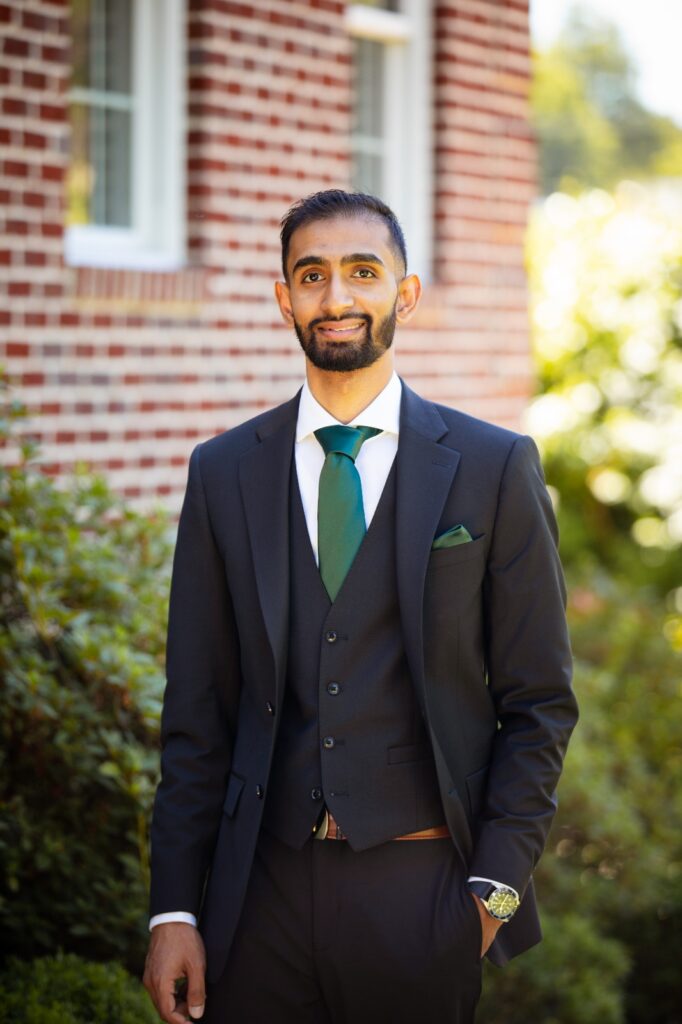
BA (2017), Political Science and Arabic, Summa cum laude with highest honors, Tufts University
Umar Shareef is a doctoral candidate in the Department of Arabic and Islamic Studies. His research combines Foucault’s genealogical method with Talal Asad’s theory of discursive traditions to study the genealogy of the legal concept ‘restricting the permissible’ (taqyīd al-mubāḥ). In doing so, it traces the interplay between 17th-21st centuries Islamic law and politics by investigating questions of who has authority to determine religious law. His research has been published in the journals Islamic Law and Society as well as American Journal of Islam and Society (see his article entitled “Taqyīd al-Mubāḥ and Tobacco: Between Administrativeand Legislative Authority”). He has received the CICW Research Grant Award to support his research. He has also received the Spring Conference Travel Award from the Department of Arabic and Islamic Studies to present his research at the BRAIS conference. As a part-time lecturer, he also teaches classes on the Introduction to Islamic Law, Islamic Legal History, and Family Law in Islam.
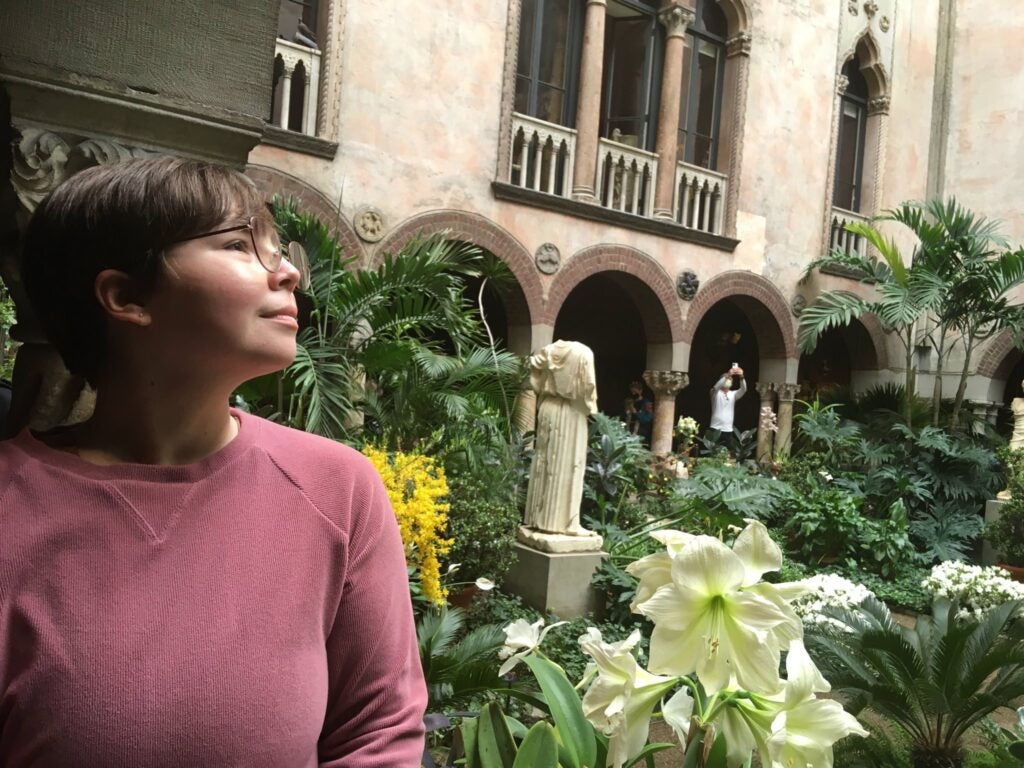
BA Linguistics and Arabic, University of Arizona
Bethany received her BA in Linguistics and Arabic at the University of Arizona. She has also completed intensive language training focusing on MSA, Moroccan Darija, and French. Her primary research interests include sociophonetics, and intra- and interpersonal speaker variation, in addition to diglossia in North Africa.

MA (2016) Comparative Literature, University of Toronto
BA (2015) Comparative Literature, Western University
Nina holds a BA in Comparative Literature from Western University and an MA from the Centre for Comparative Literature at the University of Toronto. Her academic research focuses on the period after the 1967 defeat and the ways in which Arab intellectuals and writers contended with its psychological and sociopolitical aftermath. She is chiefly interested in the role of satire as a mode of subversive critique in the Arab world, particularly in response to traumatic historical events since the naksa and leading up to the so-called Arab Spring. In her free time, Nina likes to dabble in poetic translation and stalk any and all cats in her neighborhood.
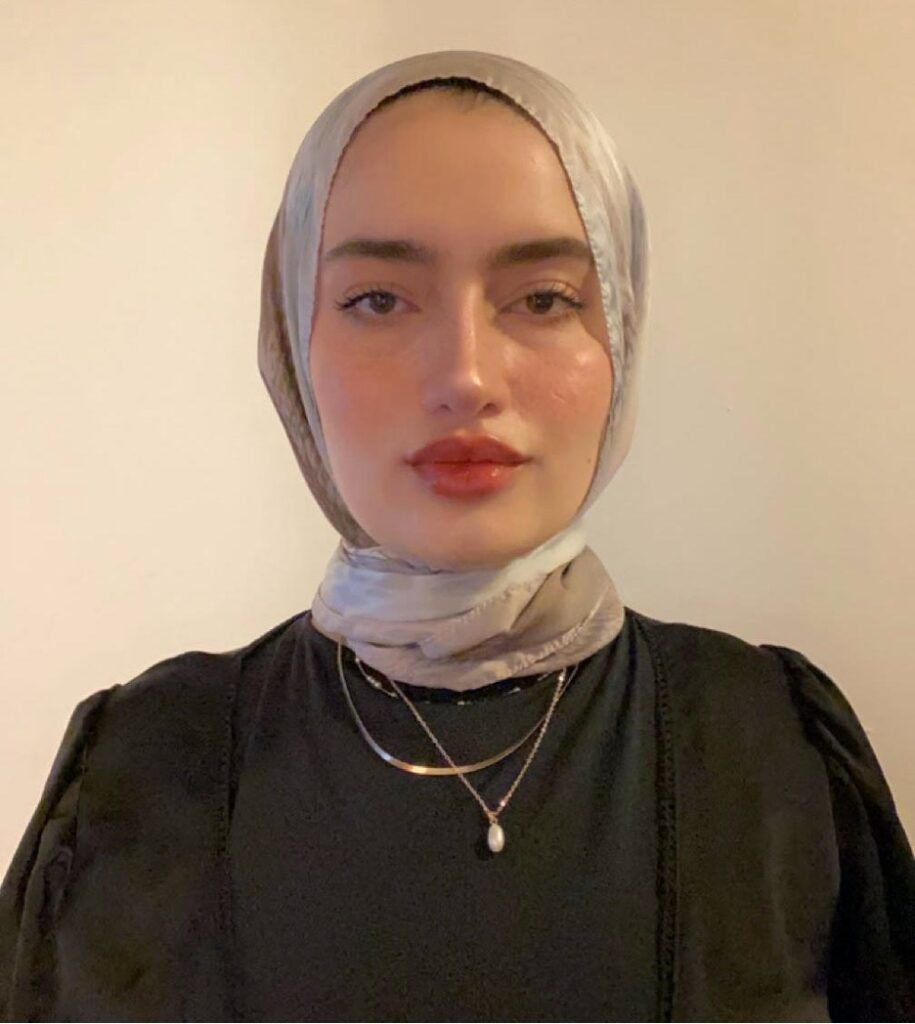
BIELASAN ZAINA
MA (2023), Linguistics, University of Wisconsin – Milwaukee
BA (2020), Linguistics, University of Jordan
Bailasan is a PhD student whose research interests include Arabic linguistics, particularly Arabic syntax. Her main research interests lie in the fields of synchronic and diachronic syntax. With respect to syntactic change, grammaticalization is a topic that particularly interests her. She also seeks to approach Syntax through Computational Linguistics. Zaina’s minor concentration is Islamic Studies.
In her master’s thesis, Morphosyntactic Structures of Progressive Aspect in the Oral Production of Heritage Najdi Arabic Speakers, Zaina investigated whether the active participle [gaʕid] in the progressive aspect surfaces in the production of Najdi heritage speakers along with the influence of MSA which does not have this participle, given the fact that those speakers have acquired the relevant variety of Arabic in early childhood along with MSA. Her paper also sought to gain some insight into whether these speakers display differential competencies with regards to the agreement morphology between the subject and the participle [qaʕid]. In addition, it explored the theoretical reasons behind their (a)symmetric competencies as whether the notion of default-form over-generalization and transfer are at play in those speakers heritage acquisition of Najdi Arabic
In addition to her academic research interest, Bailasan has done work in legal translation and content writing. She speaks Arabic as her first language, English, as well as Turkish. She has also obtained a certificate in Python from the University of Michigan.
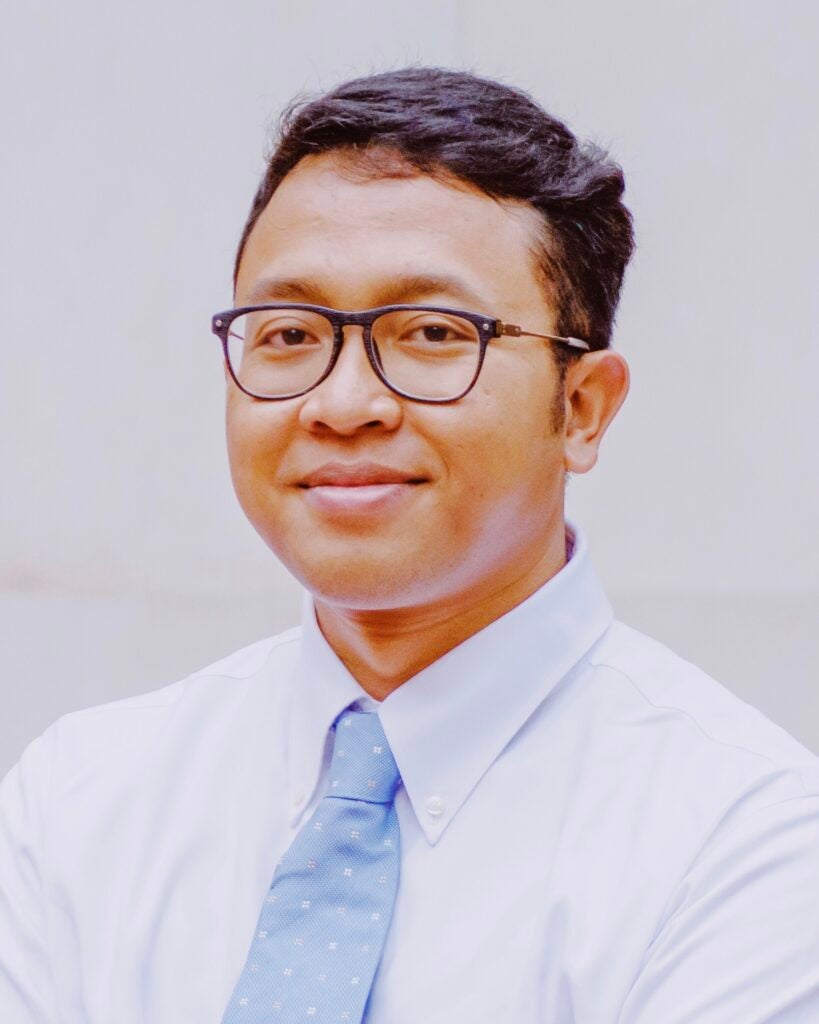
HALIM KHOIRI
BA, Religion and Philosophy, Paramadina University
MA, Islamic Studies, George Washington University
Trained in a Javanese traditional madrasah (pesantren), Halim has a deep interest in the convergence of Sufism with philosophy, theology, law, literature, and the comparative study of religions. He earned his BA in Religion and Philosophy from Paramadina University as a recipient of the prestigious Paramadina Fellowship. He then pursued his MA in Islamic Studies at the George Washington University, fully supported by a scholarship from the Indonesia Endowment Fund for Education. He achieved Magna Cum Laude honors at both institutions.
Following the completion of his master’s program, Halim returned to Indonesia, where he served as a consultant to the special staff of the Minister of Education, Culture, Research, and Technology. He contributed to various projects concerning national education policy, curriculum development, and interfaith dialogue. Later, he joined the Ministry of Religious Affairs, continuing his involvement in similar projects.
Halim is majoring in Islamic Studies with a minor in Arabic Literature. He is currently working on the intellectual history of the philosophical Sufism of Ibn ʿArabi (tasawwuf falsafi) in Southeast Asia from the 15th to the 18th century. His investigations delve into the Islamic intellectual and political connections interlinking Southeast Asia, the Indian Ocean, the Middle East, and South Africa. His primary area of interest lies in manuscripts on philosophical Sufism authored by Nusantaran scholars, including Yusuf al-Maqasiri, Hamzah Fansuri, Shams al-Din al-Sumatrani, ʿAbd al-Raʾuf al-Sinkili, and ʿAbd al-Samad al-Palimbani. In addition to his studies, Halim enjoys listening to Sufi Qawwālī in Urdu and reading Sufi poems in Arabic and Persian.
